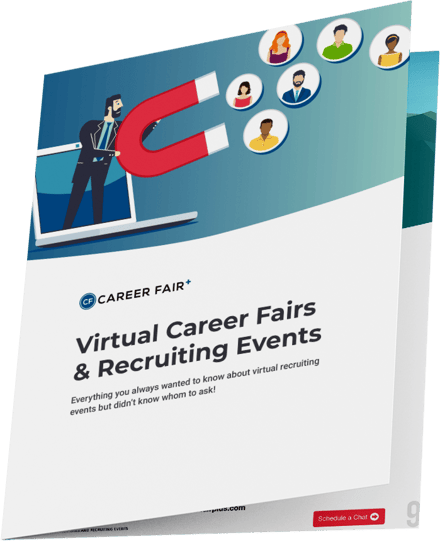You've landed that critical interview for your dream job. Now you feel like the pressure is on to absolutely nail the interview and there's a hundred different thoughts buzzing through your mind.
Stop. Breathe. Relax. We've got you covered.
No matter the type of interview you're walking into – whether behavioral, situational, or technical – our series on preparing for the big meeting will give you the confidence you need to succeed.
First, we'll be exploring what to expect when confronted with a behavioral question and how to maintain your cool and overcome any curve balls thrown your way.
What is a behavioral interview?
Behavioral questions are being used more frequently by employers for vetting potential employees, and the reason for that is embedded in the alternative name for behavioral questions: competency-based questions. Essentially, the interviewee is asked to provide specific examples of situations in their previous work/student experience and how they behaved/handled those circumstances. This helps give the employer insight into what to expect from the candidate in the future.
How will you know you’re in a behavioral interview? Here’s a hint
There are key opening phrases that will clue you into the fact that you're in a competency-based interview. Questions that begin with:
-
"describe a past situation in which…";
-
"give us an example of a time when…"; or
-
"in your past experience, how do you usually deal with…"
are all priming to dig into your professional or academic history and explain your habits, competencies and even your mistakes.
While this may seem daunting at first, sharing stories with the interviewer is a fantastic opportunity to showcase your skills and strengths and to highlight areas which you are actively working to improve. (No one is perfect, and admitting you're open to personal growth speaks volumes about you as a candidate!).

How can you prepare?
With the rising popularity of behavioral interviews among hiring managers, it's almost a guarantee that at least part of your interview will involve competency-based questions, so it's always best to be prepared. Consider the following in advance:
-
Expect tough questions (and be honest): If the interviewer asks "tell us about a time you made a mistake and how you handled it", they aren't trying to break you down or embarrass you, they're trying to gain a sense of who you are and how you react to adversity.
It may be tempting to boast that you haven't made any previous mistakes (it may even be true!), but it's always best to offer an answer; it shows a willingness to admit to your mistakes and a strength of character in dealing with the consequences.
-
Reflect, explore, expound: Before the interview even begins, you can build an internal database of past experiences you think highlight your strong points. Make a mental list of situations in which you were under a lot of pressure and how you dealt with it. Focus on particular moments that are relevant to the environment of the company and competencies of the position you are applying for.
Examples that come up frequently in interviews may include:
- A time you were in conflict with a colleague or manager.
- A time you were under a lot of stress due to an upcoming deadline.
- A time you failed to meet or utterly exceeded all expectations of a task.
- A time you provided an innovative solution to a persistent problem.
- A time that miscommunication led to a major setback in the work environment.
Spend time honestly analyzing the situations and reflecting on how you navigated the circumstances. In the interview, when providing a relevant example, feel free to expound on what you learned from the experience. The more detail you provide, the clearer a picture the hiring manager will have in their mind of your potential.
When picking your examples, be sure to focus on those skills and situations which are most important to the position you are applying for as well as situations that focus on your attention to detail, ability to collaborate, communication, leadership, and pursuit of goals. The right story told with the right details can make you seem like a superhero in the eyes of the employer.
-
Practice telling your story: No one likes to be caught off guard or put on the spot, so once you've gathered a handful of past situations in your mental database, spend time telling and retelling the stories. Tell them to your friends. Tell them to yourself in the car or in the shower or while you prepare dinner.
Repeat them, adding and subtracting details as you become more and more familiar with each retelling. Interviewers don't expect you to deliver an Oscar-worthy performance, but for your own benefit it's best to know your subject matter so you don't forget to include that single important detail that will leave the best and biggest impression on the interviewer.
-
Be your authentic self: As important as your work experience and skills are to landing a new job, the entire point of a behavioral interview and associated questions is for hiring managers to gain a deeper insight into your personality. They want to know what drives and motivates you, where your passions and strengths lie, and whether you'll make a good fit for the team.
Answer questions in your own unique voice. Don't allow a desire to appear perfect become a barrier to letting your true self shine in an interview. People respond positively to sincerity and authenticity.
Remember, while behavioral questions may at first seem daunting, consider that they are an opportunity for you to share not only your experiences, but also your personality.
And the strength of your communication, self-awareness and willingness to adapt and learn from mistakes might make all the difference in landing you that new job.
By Rob Ewart, Operations Manager at Wizco, a New York-based tech startup that connects job applicants with market experts who provide one-on-one guidance and coaching tailored to applicants’ needs and the positions they applied for. Click here to schedule your own mock interview with an expert!
Planning an event instead? Click here to find out how we can help you bring your next event to life.
